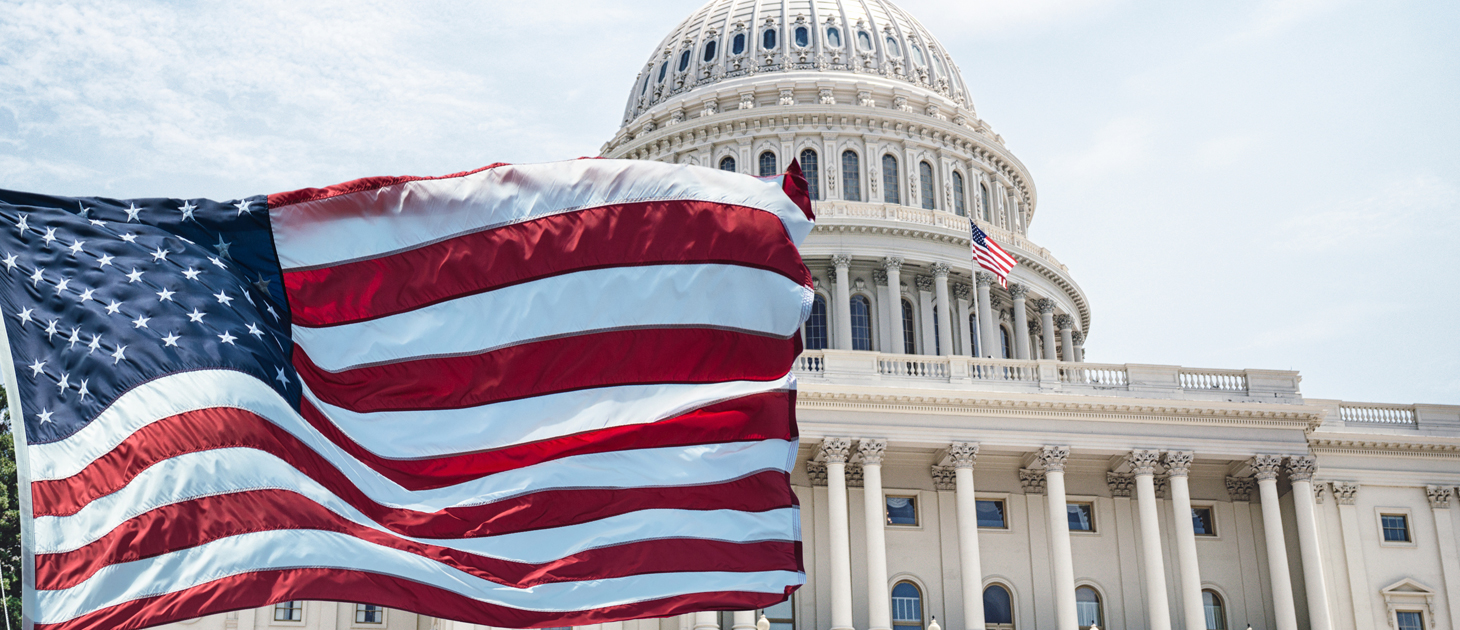Middle-Market Public Policy Roundup
A look at key provisions of the spending bill that the Senate passed Thursday night, the future of the Volcker rule, and escalating trade tensions with China.

This week’s roundup looks at key provisions in the spending bill that the U.S. Senate passed Thursday night, including changes to the leverage allowances for business development companies and a new mandate for the SEC’s Advocate for Small Business Capital Formation. Meanwhile, the Federal Reserve became responsible for changes to the Volcker Rule, and trade tensions between the U.S. and China escalated further.
Spending Bill Advances
The House advanced its omnibus spending package on Thursday, and the Senate passed it in quick succession that evening. The package clocked in at $1.3 trillion and 2,232 pages. Lawmakers had less than 24 hours to read the bill, and the Senate had a little over 24 hours to pass the legislation before the government would otherwise shut down at 12:01 a.m. on Saturday, the WSJ reports.
Notably, the legislation includes a rider that generally would allow business development companies to reduce their required ratio of assets to debt to 150 percent from 200 percent if:
- The BDC discloses such with the SEC and on its website; and
- The majority of the BDC’s directors, general partners and shareholders approve
Additionally, securities offerings and proxy rules that are available to other issuers are now required to be available to BDCs.
BDCs are publicly traded, closed-end funds that invest in small and midsize businesses. The legislation also mandates that the Securities and Exchange Commission’s Advocate for Small Business Capital Formation identify challenges that small businesses face in areas affected by natural disasters.
The bill also includes funding for infrastructure investment ($21 billion), combating the opioid crisis ($4 billion), and a border wall ($1.57 billion). It provides a fix to the unintended “grain glitch” in the tax reform law that allowed farms to sell grain to cooperatives at a comparative tax advantage relative to selling to corporations, which was negotiated by Republicans in exchange for a 12.5 percent increase in low income housing tax credits for the next four years. The bill does not include an online sales tax, a fix for the Deferred Action for Childhood Arrivals program, or any Affordable Care Act stabilizations.
Notably, the legislation includes a rider that generally would allow BDCs to reduce their required ratio of assets to debt to 150 percent from 200 percent …
House Committee Passes Volcker Rule Rewrite
The House Financial Services Committee passed a bill that would place sole jurisdiction over the Dodd-Frank Act’s Volcker Rule with the Federal Reserve, Bloomberg reports. The legislation is designed to ease compliance burdens for some of the nation’s largest banks. Under the legislation, the Federal Reserve will be responsible for any potential modifications to the Volcker Rule, which will likely enable changes to be made more quickly. The Treasury Department proposed changes to the Volcker Rule last year in its reports recommending various provisions of financial regulations that could be improved.
The bill passed in a 67-31 vote. It was touted by Republican Rep. Jeb Hensarling of Texas, the chairman of the Financial Services Committee, as an example of the sort of bipartisan legislation that he thinks should be included in the Dodd-Frank regulatory relief bill that passed the Senate last week (which was addressed in last week’s policy roundup). The provisions for BDCs and the SEC Advocate for Small Business included in the omnibus spending bill are also the types of legislation that Hensarling has said he would like included.
Trade Woes Continue
CNBC reported on the continuing saga of potential trade skirmishes as President Donald Trump signed a presidential memorandum instructing the government to look at levying tariffs on approximately 10 percent of Chinese goods that are imported each year, or $50 billion worth (maybe even $60 billion, Trump later revised). U.S. industries will have 15 days to comment. The stock market fell nearly 700 points, likely because of the news.
In response, China has announced tariffs on approximately $3 billion of U.S. pork, steel and aluminum, as well as an intention to pursue mediation through the World Trade Organization, Bloomberg reported on Thursday.
Check back each Friday for the weekly Public Policy Roundup. Is there a policy issue you’d like us to cover? Send your suggestions to MMG Editor Kathryn Mulligan at kmulligan@acg.org.
Correction: A previous version of this article stated that the proposed legislation would generally would allow business development companies to double their leverage ratio from 1-to-1 to 2-to-1. In fact, the bill would allow BDCs to reduce their required ratio of assets to debt from 200 percent to 150 percent if certain conditions are met.

Ben Marsico is ACG Global’s manager of legislative and regulatory affairs.


